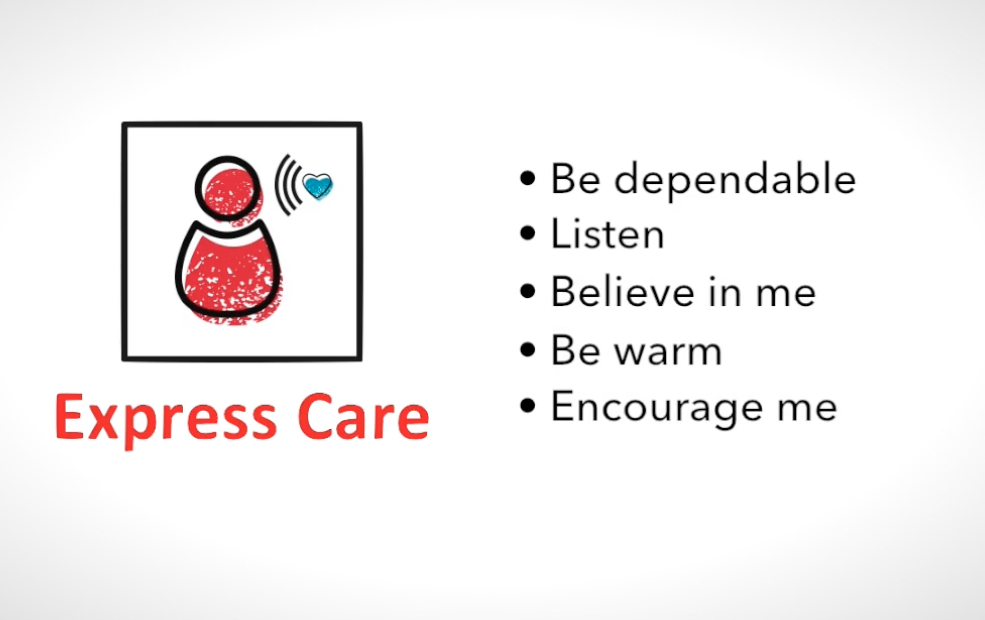Subscribe for Updates

As adults who work with young people, we understand the importance of showing kids that we care about them. As Teddy Roosevelt reportedly said, “Nobody cares how much you know until they know how much you care.”
That’s why Express Care leads the list of our Developmental Relationships Framework.
A developmental relationship is a research-based list of what young people need in order to thrive. These are trustworthy, purposeful relationships that help young people . . .
- Discover who they are;
- Cultivate the abilities needed for them to shape their own lives; and
- Learn how to engage with and contribute to the world around them.
Expressing care is the foundation of relationships. When we express care to children, we show them that we like them and want what’s best for them.
We show our kids that we care by how we listen, demonstrate warmth, invest time and energy, and be someone they can count on.
Your Role in Building Developmental Relationships
A large amount of research supports that young people do best when they experience strong, positive relationships in all parts of their lives. When these relationships happen, they are more likely to show signs of positive development in many areas, including:
- Increased academic motivation;
- Increased social-emotional growth and learning;
- Increased sense of personal responsibility; and
- Reduced engagement in a variety of high-risk behaviors.
9 Ways to Express Care
It’s one thing to agree these relationships are important, but applying them requires intentionality and thought. So here are nine ways you can express care to the young people in your life.
- Take time to greet young people each day as they arrive at your school, class, or program. Systematically check in with different young people on a regular basis (not just the same ones every time). Simply saying something like “Hi Jayden, good to see you today. How did your big math test go?” lets them know they’re noticed and you remember a detail about their life.
- Pay attention. Focus on young people when they are talking about things that matter to them. Put away your cell phone. When we get distracted, young people can get the message that other things are more important than they are. They may think “if they really cared, they’d really listen.” In reality, it’s easy to get distracted in our fast-paced world. Putting away our phone and being fully present will help us avoid half-listening to each other.
- Follow up with young people when you learn they are going through something, rather than waiting for them to bring it up again. Or follow up after a big event in their life, such as “How did the soccer game go over the weekend?”
- Make time for lightness. Share in some humor, fun, and laughter amid the practical tasks. Smile, have fun, and show them that you enjoy being with them.
- Asking follow-up questions lets young people know you’re interested and tracking with them; “What was that experience like?” “How did that make you feel?”
- Find satisfaction in doing things for and with young people, even if these things wouldn’t otherwise be important to you.
- Strive to understand and show sensitivity to young people’s feelings. When we are able to sympathize or empathize with the young person, we can better learn to understand their needs, feelings, and motivation for what they do.
- Do what you say you will do, and keep your promises. This builds trust and shows them that you care.
- Ask for more: When young people tell you about something they care about or show you something they have made or done, ask to learn about it. Go beyond nodding or saying “great job”; ask “Why are you interested in or proud of the work?” or “How did you come up with your idea?”
Do you have ideas to express care? We would love to hear them! List them in the comments section below!
Search Institute
3001 Broadway Street NE #310
Minneapolis, MN 55413
© 2021 Search Institute |
Search Institute is a 501(c)(3) nonprofit charitable corporation. All contributions are tax deductible.